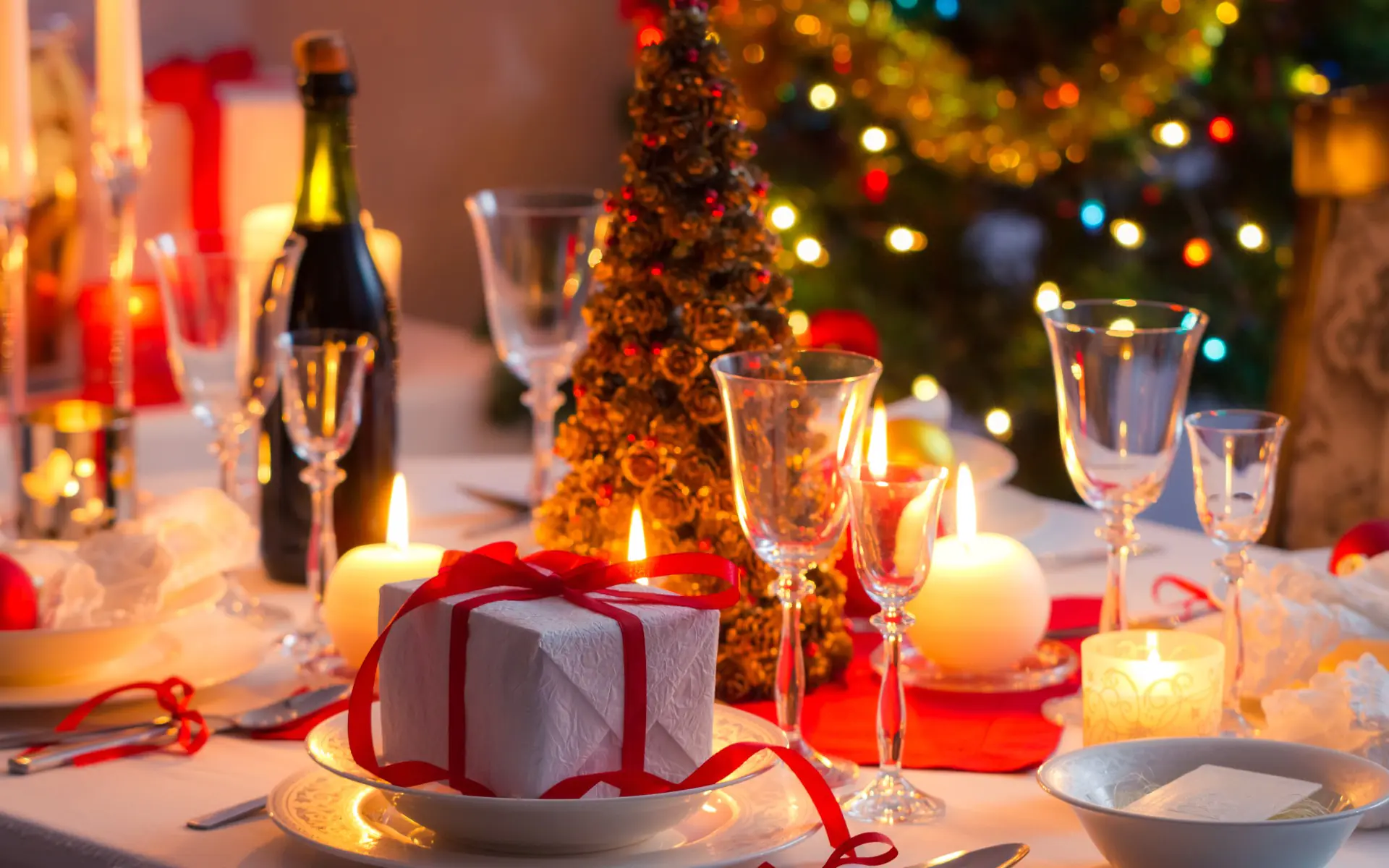A feast is a time when the table is bursting with treats and all kinds of dishes. In such conditions, it is so difficult to refuse to try another piece of cake or a portion of a new salad. At the same time, every woman prepared for the holiday, limiting herself in nutrition and exhausting her body in the gym. So that your efforts are not in vain, we will show you how to learn not to overeat during a feast.
First, let's talk about food. If you decide to celebrate a holiday at home and invite friends, then you probably prepared everything in advance and didn’t eat anything on purpose. Or they didn’t cook anything and didn’t eat anything because there was no time for it. Another option is that you are on a diet, so again you didn’t eat anything. So, not eating anything before a feast is very bad.
To avoid overeating at the table, about 4-5 hours before the start of the festive dinner, have something light to eat. Let it be a vegetable salad - with a minimum amount of calories and harmful substances, it will create a quite decent feeling of fullness. If vegetable salad is not your thing, eat some fruit. Also, instead of salads and vegetables, you can resort to a folk remedy: brew 1 tbsp with boiling water. l. bran and drink this decoction an hour before guests arrive. If you don’t have bran on hand, drink a decoction of flax seeds. Another option is to support your stomach by taking enzymes.
If you are invited to visit, drink a glass of water half an hour before meals, and also eat something fruit and vegetable. Vegetables, and especially apple juice, promote good digestion of meat, which is considered heavy food. We are sure there will be plenty of meat on the table. Conversely, meat is much more difficult to digest when combined with potatoes, rice, bread and pasta. In general, throughout the entire feast, follow the approximate trend - eat half the harmful food and the harmless food.
In addition to proper nutrition, it is equally important to be able to limit yourself in the amount of food you eat. The key here is to eat slowly. Put on your plate not two and a half servings, supposedly with a reserve for the whole evening, but half a serving - this way you will eat less and longer, which will incredibly help the digestion process. Try not to eat everything that is on the table, but choose only those dishes that you really like and want to try. You don't have to finish every dish if you feel like you're already full. It is important to listen to your body and not overeat.
It's also worth noting that alcohol can greatly affect your ability to control the amount of food you eat. Therefore, if you want to limit yourself in food, it is better to drink alcohol in moderation or avoid it altogether.
And don't forget about physical activity. If you know in advance that you will be eating a large calorie dinner, it is worth thinking in advance about how to compensate for these calories. For example, you can do physical exercise in the morning before or after a feast. You can also take a walk outside or engage in other activities that will help burn extra calories.
In general, in order not to overeat during a feast, you need to monitor your diet, be able to control the amount of food you eat, not abuse alcohol and engage in physical activity. And the most important thing is not to forget to enjoy communication and celebration, because this is the main purpose of the feast.



